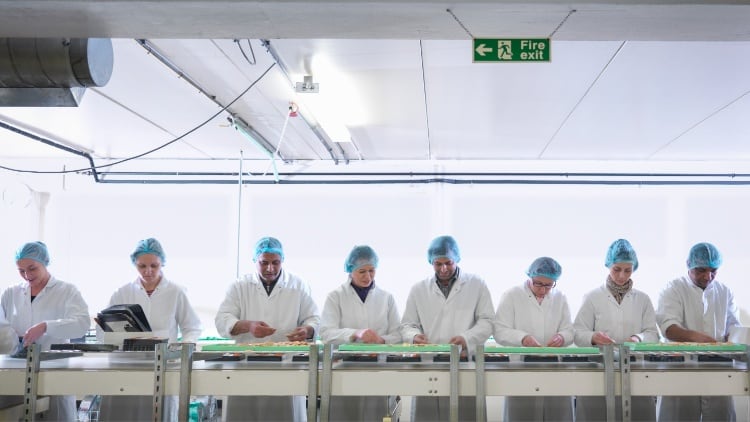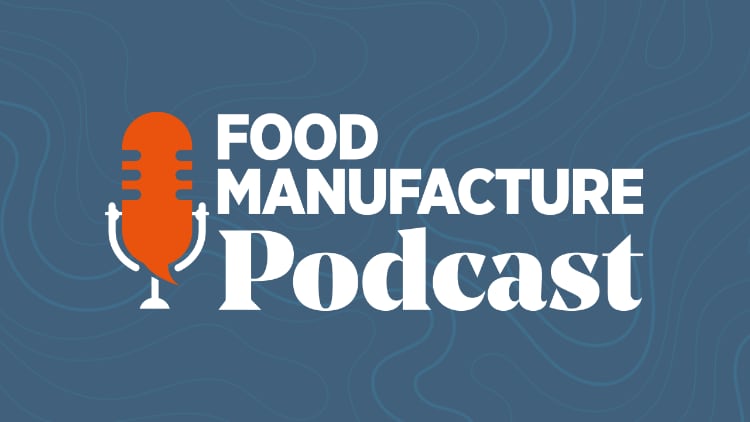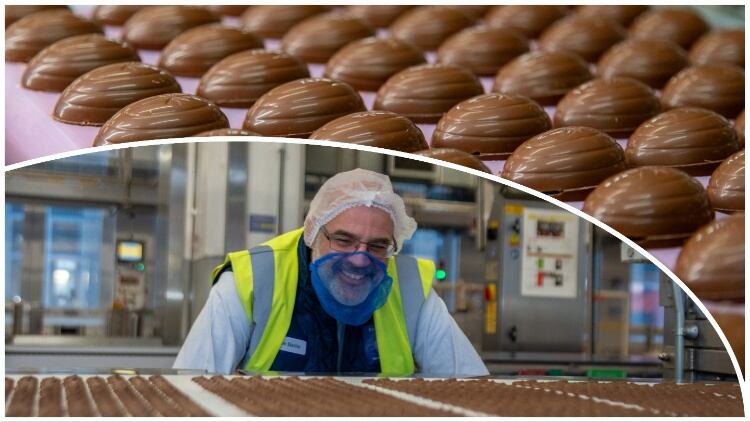In the fast-moving world of food and drink, innovating is key. Whether manufacturers are looking to stand out from the competition with a refreshed offering, improve the nutritional content of an existing item or enter a new category, the F&B industry is constantly seeking new ways to serve consumers.
The regularity with which NPD takes place does not mean it a simple process though, especially given the need to remain compliant with complex regulation and meet everchanging consumer demands.
With insight from NPD experts that work across several different roles within the industry either as manufacturers or in an adjacent capacity, Food Manufacture takes a peek at the process behind the products.
Why is NPD important?
While this may be an obvious question to F&B veterans, it is always worth reminding ourselves why so many resources are spent on the NPD process.
As Andy Taylor, NPD manager at bakery ingredients supplier Zeelandia UK, puts it, the F&B sector is “very responsive to trends, be that seasonality, a new flavour profile, or new ingredients to bring added value to a product” and therefore manufacturers need to have a consistent focus on innovation.
Matt Casey, head of customer and culinary innovation at pork processor Pilgrim’s UK, agreed with this perspective, and told Food Manufacture that the firm has developed a “meticulous process” which is designed to ensure that all its products “tap into key customer desires”.
Casey continued: “As part of the ongoing process of research and development and insight gathering, we strive to do three things: make it easy for consumers to buy prepare and eat our products; surprise and delight consumers with inspirational products that set us apart from our competitors, bringing consumers to the fixture and driving repeat purchases; and provide healthy solutions for consumers while tackling barriers to buying meat products.”
He added that Pilgrim’s UK also relies on its chefs and NPD experts for inspiration, because they “stay ahead”, keeping abreast of emerging trends, they experiment, and, ultimately, they are the brainchildren of the products which end up on the shelves.
Meanwhile, for Taylor, the growth and sway of social media has made responsive NPD more important than ever.
He told Food Manufacture: “The need for faster NPD has been heavily influenced by the increasing pace at which consumers are spotting new trends, with bakery products showcased across Instagram and TikTok creating instant demand.”
Consultant innovation chef at New Food Innovation (NFI) Anthony Warner added that the NPD department is the “most important” for a manufacturer, especially in the modern age.
“NPD teams are responsible for adding value to what would otherwise be a bunch of commoditised ingredients,” he noted.
“Without NPD, businesses would have nothing to sell. This means that they will always be in huge demand, and I do not see that changing in any meaningful way.
“I believe NPD should be valued more, both financially and in terms of business seniority, and allowed to spend more time focused on their core activity.”
The NPD process
If firms are to create new products that both meet evolving and changing consumer demands, they need processes in place to allow them to be responsive and creative.
Daniela Quintero, director of design and product development at Luker Chocolate, said that the chocolate supplier and manufacturer is constantly experimenting with ingredients, flavours and textures that can be used to create innovative new products. To ensure it is meeting the demands of the wider industry, the firm uses a process called “co-creation”.
“[Co-creation is] a collaborative process in which we employ 118 years of expertise to better service our clients’ needs,” Quintero told Food Manufacture.
“In the first stage of NPD we work with a client or prospect to define requirements and differentiators (or the USP). We often find that larger businesses have a set vision for their chocolate product, but smaller brands want a range of options that call on our expertise and guidance.”
A greater understanding of the clients’ objectives and challenges can be ascertained through the use of “in-depth interviews”, before Luker utilises its market insights toolbox, which Quintero said helps with “mapping current trends and market predictions to identify growth opportunities”.
She added: “We’re increasingly working with clients to create healthier chocolate products for the conscious consumer, including formulations that use natural, less processed sugars such as coconut, or non-dairy alternatives such as oat milk.
“This level of client involvement ensures co-creation speed and agility – delivering the products that clients want with fewer prototypes and less waste.”
Taylor said that Zeelandia also employs a collaborative approach to NPD, as it can “significantly speed up” the process. To achieve this, the bakery firm invites clients to its technical centre in Colchester where they can trial and test different products and help steer how Zeelandia develops on their behalf.
“For commercial bakers, the NPD process often starts with research and development, then procurement and testing of specific ingredients to match new product ambitions, before scaling up production,” continued Taylor.
“Accumulating technical knowledge and market insight from our sister companies worldwide puts us in a unique position where we can respond quickly to NPD customer briefs and offer valuable support to our industrial customers to steer product innovation, as well as make use of a global portfolio of ingredients and European processing sites for projects that span across different countries.”
Once the initial process of determining the direction of the NPD department is complete, the manufacturer can begin looking into sourcing ingredients and planning production.
“In stage two, we work with clients to source the right, high-quality ingredients from our toolbox, including a selection from our diverse range of cocoa,” explained Quintero.
“Clients choose from options that include growing region, percentage of cocoa, type of sugar and/or milk used, and more. When the NPD process goes beyond creating a bespoke couverture, and clients request a finished product, we move onto product design.
“Once we have identified a category and couverture type, this stage allows us to be more experimental and support our clients to stand out from the crowd. It’s here that we can add bespoke flavour combinations and textures to meet the client’s vision: think exciting additions such as spices, crunchy peppermint or bursts of berries.”
Finally, Luker will support its client with the design and manufacturing of the product packaging. In addition to the need to find a sustainable and affordable solution, it is also important that it helps create a “memorable consumer experience” that encourages them to try something new.
Explaining the process as a whole, Quintero said that each step has been meticulously optimised over time to provide clients with “flexibility, adaptability, expertise and scalable resources”.
“This model also ensures we, as their manufacturer, are closely aligned on values, enabling us to uphold equity, fairness and sustainability throughout our shared value chain.”
Innovation in action
An example of Zeelandia’s NPD process in action is the development of the ‘Yorkshire Loaf’, which has since been recognised as ‘Specialty bread of the year’ at the British Baker’s Baking Industry awards.
“During Covid we worked with leading modern craft bakery company Country Style Foods to develop a red rye grain blend, whittling down from 30 malt trials with a local brewery company and driving a process to make the grain acceptable for bread making,” said Taylor.
While Taylor acknowledged that using the flavour of beer in bread is a growing trend across UK consumers, he added that the best innovation does not always require the reinvention of the wheel.
“NPD for us also means to explore how we can improve our existing products and make them more sustainable, such as a new cap on our Carlex Release Agent Sprays, which will lead to a 17T reduction in plastic from the Zeelandia global supply chain,” he explained.
Meanwhile, Casey highlighted the launch of Waitrose’s new No.1 pork products as an example of innovation in action. The range forms part of a premium offering at Waitrose and was made using free-range pork reared in the UK by Pilgrim’s.
“Noticing the interest consumers were taking in butchery techniques used to create premium beef products, we took a fresh look at how we could take inspiration from beef cuts and apply it to the pork category, to drive the premium dining experience,” Casey said.
“This work saw us launch two standout products – ‘Pork T-bone’ and ‘Pork Rib-eye steaks’. We packaged them similarly to Waitrose's beef steak range, ensuring they caught the eye on the shelf and conveyed their premium quality.
“Recognising that some consumers can find cooking pork a challenge, we applied an innovative technique to our NPD to make the products suitable for sous vide cooking, with a simple marinade for flavour, aligned to the methods of top chefs.
“We also developed a method for home chefs without a sous vide, where the consumer could start cooking the steaks in simmering water and finished in the frying pan, ensuring a succulent eat.”
Finding external support
NFI is an organisation that specialises in supporting food and drink manufacturers with the NPD process. Warner, who has an extensive background in food science, plays a key role in this process and said that the current demands on NPD teams across the industry are “huge”.
“As well as responding to a high volume of product development briefs, most developers will have to support several other areas of the business, helping swap out ingredients, improve processes, or just assist the factory when something isn’t running down the line properly,” he said.
As food and drink manufacturing becomes increasingly trend driven, this has placed added pressure on NPD specialists working on branded and private label products.
“There will be briefs to create seasonal variants, demands to deliver product showcases, and half a dozen internal cost saving initiatives, all of which take NPD teams away from their core activity,” explained Warner.
“At any one time, most developers will be dealing with four or five groups of people all convinced that their project is the most important in the business.”
Besides the time constraints that many in the industry experience, Warner also highlights that much of the innovation that is introduced is built on the back of a prolonged research phase and extensive testing and experimentation.
He continued: “Even when departments have resources dedicated to this sort of work, the huge demands of day-to-day product development will often see them being pulled back in to support and firefight. Delivering a five- or ten-year breakthrough innovation strategy is vital to a business’s survival, but meeting the short-term demands of an angry retail buyer will always take priority.”
To help its clients avoid the issue of short and long-term goals coming into conflict, NFI offers an outsourced NPD service that taps into a series of academic and institutional collaborations. Warner said that this operating method has a proven track record of success and believes that too many firms look to manage the entire process internally, even if that is to the detriment of their final output.
“Outsourcing large, stressful chunks of non-core work can make a huge difference to a team’s success,” he concluded.
Similarly to NFI, Digi Food NPD specialises in supporting the food and drink sector with innovation. Founded by Sean Gilbride, a product development expert with more than 25 years of experience, he established the business when he became frustrated with the lack of a platform dedicated to streamlining the NPD process.
“Digi Food NPD is designed specifically for the food industry, particularly for food product teams, and developers involved in prepared consumer food sectors,” Gilbride told Manufacture.
In addition to streamlining the NPD process, the platform automates aspects such as recipe development, nutritional calculations, food labelling, product specification and team collaboration.
“Our platform brings together all the tools needed for successful new product development and food innovation onto one centralised platform, where teams can easily collaborate to bring their food products to market more quickly,” Gilbride stated.
Whether conducted in-house or with the assistance of an external agency, it is clear that NPD is critically important for food and drink manufacturers as they seek to stand out from the competition and grow their operations. Luckily, the industry remains a hotbed for innovation and has sophisticated processes in place that help put new and exciting items on supermarket shelves with impressive regularity.
In other news, a legal claim has been launched against Avara Foods alleging that the poultry supplier is polluting the River Wye and its surrounding area.





